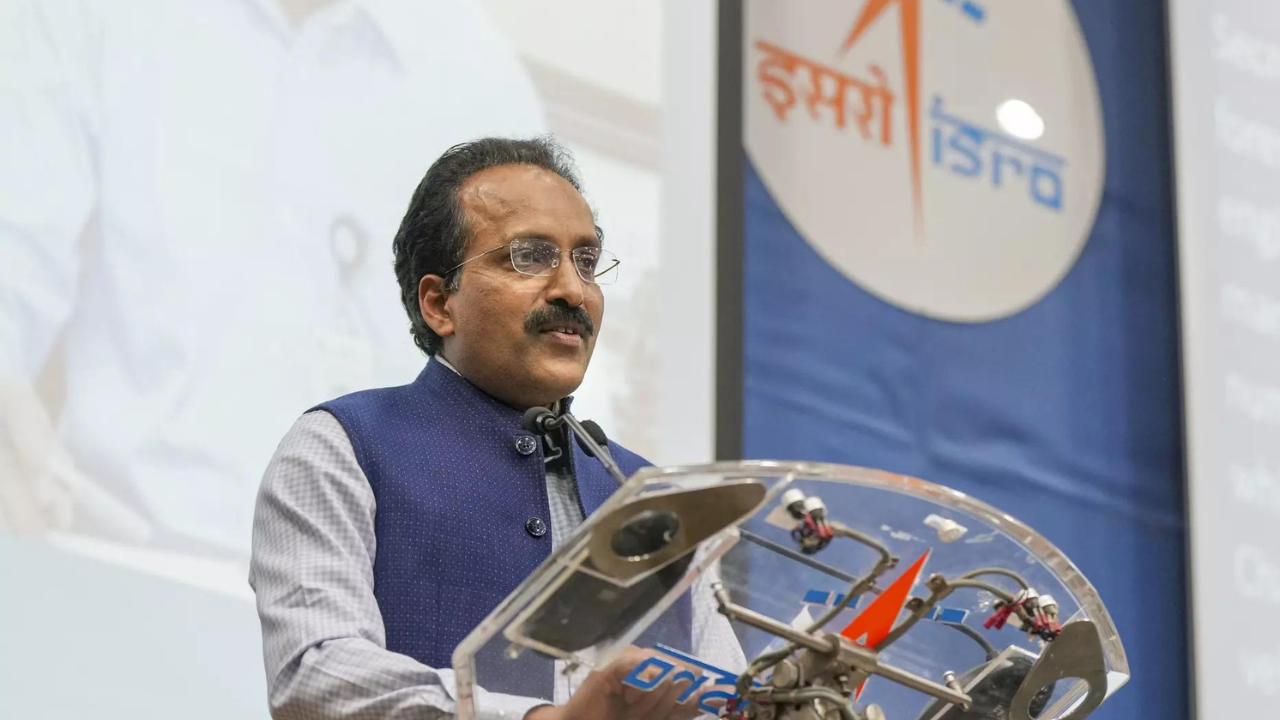Indian Space Policy 2023

The recent approval of the Indian Space Policy – 2023 marks a significant milestone in India's space endeavors. This forward-looking policy underscores the role of the Indian Space Research Organisation (ISRO) as the national space agency, prioritizing the advancement of new space technologies, applications, and human exploration of outer space. Positioned as a blueprint for the 21st-century space sector, this policy sets the stage for India's emergence as a global leader in space exploration and innovation.
Here are the highlights of the policy regarding the creation of entities and facilitating private sector participation in space activities:
-
InSPACe (Indian National Space Promotion and Authorisation Centre):
- InSPACe will serve as a single-window clearance and authorization agency for various space-related activities.
- Its responsibilities include facilitating space launches, establishing launch pads, facilitating the buying and selling of satellites, and disseminating high-resolution data.
- InSPACe will foster collaboration by sharing technologies, products, processes, and best practices with both non-government entities (NGEs), including private companies, and government companies.
-
New Space India Limited (NSIL):
- NSIL will focus on commercializing space technologies and platforms developed through public expenditure.
- It will engage in activities such as manufacturing, leasing, or procuring space components, technologies, platforms, and other assets from both private and public sectors.
-
Department of Space:
- The Department of Space will provide overall policy guidelines and serve as the nodal department for implementing space technologies.
- It will coordinate international cooperation and collaboration in space activities, working in consultation with the Ministry of External Affairs.
- The department will establish mechanisms to resolve disputes arising from space activities, ensuring smooth operations and adherence to regulations.
Overall, these entities aim to streamline and enhance India's space sector by promoting collaboration, facilitating commercialization, and providing effective governance and dispute resolution mechanisms. This policy framework is designed to encourage greater private sector participation while maintaining regulatory oversight and international cooperation in the space domain.
Private sector participation in the space industry is essential for several reasons:
-
Increasing Global Space Economy:
- India's current share in the global space economy is relatively small, at less than 2%.
- By encouraging private sector involvement, India aims to substantially increase its share to 10% in the future, contributing to the growth of the global space economy.
-
Space Exploration:
- Allowing private companies to engage in space missions has proven beneficial for nations like the United States, where companies like SpaceX have made significant contributions.
- Private companies bring innovation, efficiency, and cost-effectiveness to space exploration efforts, driving advancements in technology and expanding the scope of space missions.
-
International Competitiveness:
- With increasing global interest in space exploration and commercialization, countries must remain competitive in the industry.
- Private sector participation enables countries to leverage the expertise and resources of private companies, enhancing their competitiveness on the international stage.
-
Flexibility:
- Private companies are often more agile and adaptable than government agencies, allowing them to respond quickly to market demands and technological advancements.
- This flexibility enables private companies to innovate, develop new technologies, and explore emerging opportunities in the space sector more efficiently than traditional government-run programs.
The policy holds significant importance for India's space industry and broader technological advancement for several reasons:
-
Boosting India's Space Industry:
- The policy aims to establish industry standards, promote specific space activities, and foster collaboration between industry and academia.
- By widening the space ecosystem and facilitating industry-academia linkages, the policy will create opportunities for innovation, skill development, and economic growth within the space sector.
-
Innovation and Leadership:
- The focus on research into outer space by ISRO will drive innovation and the development of new space technologies and applications.
- This emphasis on innovation will help India maintain its leadership position in key areas such as space infrastructure, transportation, applications, capacity building, and human spaceflight.
-
Expanding India's Footprint in Space:
- The policy aims to augment India's space capabilities and encourage a thriving commercial presence in space.
- By leveraging space as a driver of technology development and fostering international relations, India seeks to expand its influence and enhance its contributions to global space exploration and cooperation.
- Additionally, the policy emphasizes the creation of an ecosystem for effective implementation of space applications, ensuring that the benefits of space technology are realized by all stakeholders.
The current status of India's space sector reflects significant achievements and ongoing developments:
-
Global Recognition and Cost-Effective Satellite Building:
- India's space sector is globally recognized for its expertise in building cost-effective satellites. India has also ventured into launching foreign satellites into space, showcasing its capabilities on the international stage.
-
Commitment to Peaceful Use of Outer Space:
- India has consistently advocated for the peaceful and civilian use of outer space, adhering to its commitment to the Geneva Conference on Disarmament. It opposes any weaponization of space capabilities or programs.
-
ISRO's Exceptional Success Rate:
- The Indian Space Research Organisation (ISRO) is renowned for its exceptional success rate in space missions, contributing to India's reputation as a reliable player in the global space community.
-
Growing Private Space Industry:
- India's private space industry is expanding rapidly, with over 400 private space companies in the country. India ranks fifth globally in terms of the number of space companies, indicating a vibrant and competitive space ecosystem.
-
Recent Developments:
- Establishment of Defence Space Agency (DSA) and Defence Space Research Organisation (DSRO), focusing on developing space capabilities for defence purposes.
- Launch of the Defence Space Mission at the Defence Expo 2022, Gandhinagar, demonstrating India's commitment to enhancing its space capabilities for national security.
- Expansion of satellite manufacturing capabilities, with the sector expected to reach USD 3.2 billion by 2025, reflecting growing demand and opportunities in the market.
- Launch of the SAMVAD Program by ISRO to promote space research among young minds, fostering innovation and talent development in the space sector.
Overall, India's space sector is thriving, with a strong foundation laid by ISRO and a growing private industry contributing to the country's advancements in space technology, satellite manufacturing, and space exploration.
Conclution:
The introduction of India's new space policy is a pivotal step towards fostering a robust commercial space ecosystem. However, to fully harness the potential benefits of private sector participation, it is crucial to address key issues such as government engagement with private start-ups and the regulatory role of INSPACe. Clear directives and effective implementation will be essential to ensure the policy's success in creating a thriving and sustainable space industry in India.













